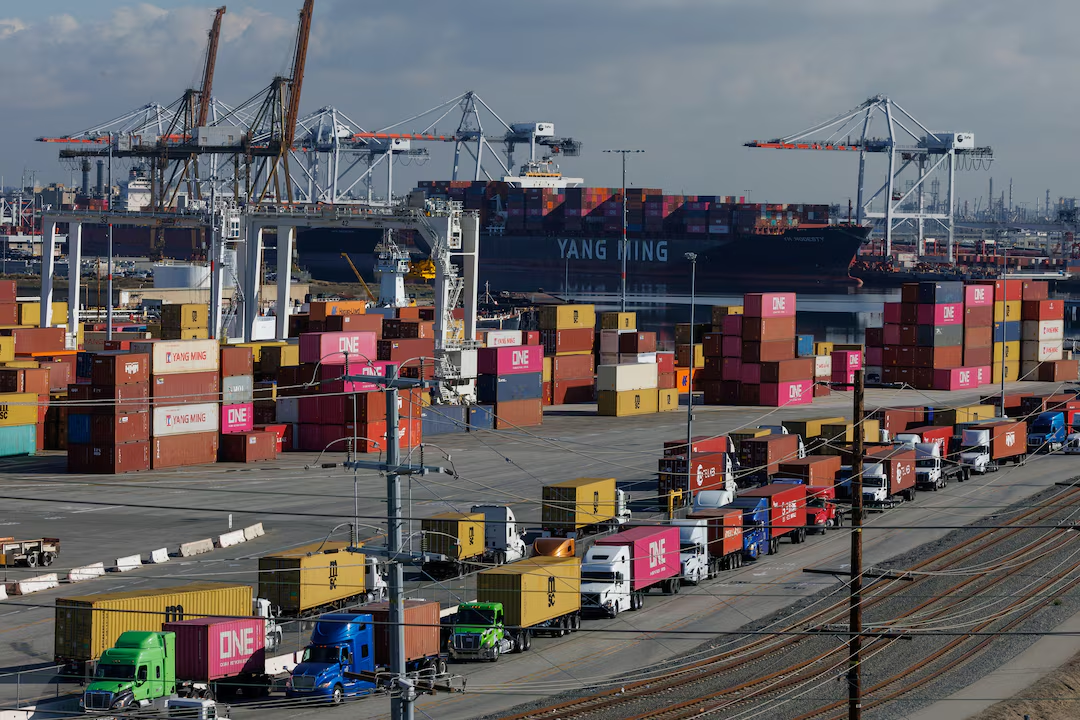The End of the Tariff Loophole: What It Means for Affordable Imports
In recent years, online shopping has transformed the way consumers access products from around the globe. The convenience of purchasing items directly from overseas sellers has made affordable imports a reality for many. However, a significant shift is on the horizon: the end of the de minimis exemption. This change means that even small items purchased from international sellers will now be subject to import tariffs, fundamentally altering the landscape of affordable imports.

The de minimis exemption allowed consumers to receive goods valued below a certain threshold without incurring import duties. For many shoppers, this meant that low-cost items could be purchased without additional fees, making international ecommerce more appealing. With the end of this exemption, the implications for consumers and retailers alike are considerable, leading to potential price increases and changes in shopping behavior.
Understanding the De Minimis Exemption
The de minimis exemption is a provision that allows certain goods to be imported without incurring import tariffs or duties, provided their value falls below a specific limit. In the United States, this threshold has historically been set at $800, meaning that any individual item valued at less than this amount could be shipped into the country without additional charges.
The Purpose of the De Minimis Exemption
The primary purpose of the de minimis exemption was to facilitate trade and simplify the import process, particularly for small purchases. By exempting low-value items from tariffs, the government aimed to encourage consumer spending and reduce the administrative burden on customs agencies. This exemption has been particularly beneficial for small businesses and individual consumers who buy products from overseas, allowing them to enjoy a wider array of goods at competitive prices.
The Change: What Does it Mean for Consumers?
The termination of the de minimis exemption signifies a substantial shift in how consumers will interact with overseas purchases. Starting now, even small items that previously fell under this exemption will be subject to import tariffs, which will likely impact their final price. Here are some of the key implications for consumers:
- Increased Prices: Consumers can expect to see a rise in prices for previously affordable imports as the additional tariffs are applied.
- Changes in Shopping Behavior: Shoppers may reconsider purchasing from overseas sellers, opting instead for domestic products to avoid tariffs.
- Impact on Small Businesses: Small business owners who rely on importing low-cost items may face higher costs, potentially leading to increased prices for their customers.
- Administrative Burden: The process of importing goods may become more complex, requiring consumers to navigate additional paperwork and fees.
The Economic Impact of Ending the Tariff Loophole
The economic ramifications of eliminating the de minimis exemption are far-reaching. They extend beyond individual consumers to affect businesses, the overall economy, and international trade relations. Here are several key points to consider:
1. Domestic Market Effects
With the introduction of import tariffs on small items, domestic sellers may find themselves in a more competitive position. As overseas goods become less affordable, consumers may turn to local alternatives, potentially benefiting local businesses. However, this could also create a false sense of security for domestic suppliers, who must still focus on quality and pricing to retain their customer base.
2. Impact on International Trade Relations
Countries may react differently to the end of the de minimis exemption. Some nations could retaliate with their own tariffs on U.S. goods, which could lead to a broader trade dispute. The interconnected nature of global commerce means that these changes can have a domino effect, influencing trade agreements and diplomatic relations.
3. Consumer Sentiment and Purchasing Power
The increase in prices due to tariffs may lead to consumer dissatisfaction, as shoppers find that their purchasing power is diminished. As affordability decreases, consumers may shift their spending habits, focusing on fewer purchases or seeking alternative products.
Strategies for Consumers Facing New Import Tariffs
As consumers adjust to the new landscape of import tariffs, several strategies can help mitigate the impact of increased costs:
- Bulk Purchases: Consider purchasing multiple items in one transaction to spread the cost of tariffs across several products, potentially reducing the overall impact.
- Research and Comparison: Take the time to research and compare prices from both domestic and international sellers to find the best deals.
- Stay Informed: Keep abreast of changes in tariffs and exemptions, as laws and regulations can evolve over time.
- Explore Alternative Markets: Investigate local marketplaces or domestic sellers that may offer similar products without the added cost of tariffs.
FAQs about the End of the Tariff Loophole
1. What is the de minimis exemption?
The de minimis exemption allows certain low-value goods to be imported without incurring tariffs or duties, previously set at $800 in the U.S.
2. Why was the de minimis exemption eliminated?
The exemption was ended to generate more revenue through tariffs and to regulate international trade more effectively.
3. How will this change affect my online shopping?
Consumers will see increased prices on small items purchased from overseas sellers due to the imposition of import tariffs.
4. Are there any exceptions to the new tariff rules?
While the primary change is the end of the de minimis exemption, specific products may still be subject to different tariffs based on trade agreements or other regulations.
5. How can I avoid paying tariffs on overseas purchases?
To avoid tariffs, consider purchasing items that are available domestically, or buy in bulk to reduce the per-item cost of tariffs.
Conclusion
The end of the tariff loophole represented by the de minimis exemption marks a significant turning point for consumers and businesses engaged in international trade. As affordable imports become less accessible due to the imposition of tariffs on small items, both shoppers and sellers must adapt to the changing landscape. Understanding these changes, along with employing strategies to navigate the new system, will be crucial for consumers aiming to maintain their purchasing power while continuing to enjoy the benefits of global commerce. As we move forward, it will be essential to stay informed and agile in adapting to these new economic realities.
📰 Original Source
Este artigo foi baseado em informações de: https://www.nerdwallet.com/article/finance/de-minimis-exemption


